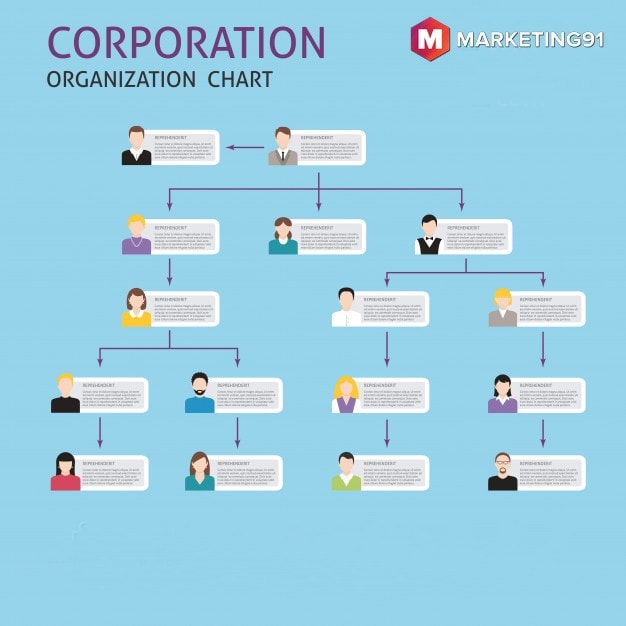
Overcoming Barriers to Effective Delegation in the Workplace

Effective delegation is crucial for productivity at work However, many face challenges in letting go of tasks Discover the top 10 barriers to delegation and learn how to overcome them for successful delegation
In the midst of our demanding work schedules, it is beneficial to delegate responsibilities to our colleagues or subordinates in order to create a sense of teamwork and provide much-needed space. Delegating tasks to subordinates not only shares the workload but also boosts their morale by involving them in important tasks at the workplace.
However, despite the seemingly straightforward nature of delegation, it is surprising to discover that there are multiple obstacles that prevent the effective transfer of tasks and responsibilities within a corporate environment. Unfortunately, many managers are hesitant to delegate, preferring instead to shoulder all duties themselves or limiting delegation to a select few individuals. To improve organizational efficiency and productivity, it is crucial that this mindset be altered.
Top 10 Barriers to Delegation at a workplace
#1 Wish to perform tasks personally
Many senior individuals and managers struggle with delegation due to their desire to personally complete all work tasks and responsibilities. They may believe that they are better equipped to handle these tasks than their team members. Additionally, some delegators may feel that maintaining control over crucial tasks will allow them to appear more capable and important to upper management. This mentality often creates a significant barrier to effective delegation.
#2 High levels of insecurity
Insecurity is also one of the prime reasons due to which managers do not delegate their responsibilities to their subordinates, teammates, and even to the management trainees.
A persistent sense of apprehension and uncertainty plagues these individuals, as they fear that their position may be jeopardized if their colleagues outperform them in terms of productivity and effectiveness. This approach can be seen as manipulative, as it denies subordinates and team members an equal opportunity to demonstrate their capabilities and proficiency.
#3 Power and Authority
These managers often hold onto the belief that they are the only ones who can do their job correctly, leading to micromanagement and a lack of trust in their team. This approach not only limits the growth and development of their subordinates but also prevents the manager from delegating tasks effectively, ultimately hindering the success of the entire team. A better approach would be for managers to empower their team members by providing clear expectations, resources, and support, while also allowing them the autonomy to take ownership of their tasks and responsibilities. This not only fosters a sense of trust and collaboration within the team but also allows for greater productivity and innovation.
#4 Lack of trust and confidence in subordinates
By withholding certain information and knowledge, delegators can create a situation where subordinates are dependent on them for guidance and direction. This allows the delegator to maintain a sense of control and authority, while also portraying themselves in a positive light to higher-ups.
A major obstacle to effective delegation is when superiors do not trust or have confidence in their subordinates. This lack of faith and trust is often compounded by the risk involved in delegating important tasks to others. If subordinates are not seen as capable of handling crucial responsibilities, superiors may need to provide handholding and support to ensure successful completion of the task as a team effort.
#5 The organized structure of work
To retain employees and improve work efficiency, it is crucial for management to implement necessary corporate actions, such as providing training and development opportunities.Ineffective delegation can be a significant obstacle when the manager lacks the ability to distribute tasks and responsibilities to their team in a well-organized and structured way. This is one of the primary Barriers to Delegation that can hinder the delegation process.
#6 Personal issues
When the delegator lacks competency in managing their team, chaos and issues arise due to uncertainty in roles and responsibilities. A clear understanding and effective management are crucial in avoiding such situations.
Fragment 14 rewritten:
When a manager has personal issues with members of their team, it can create barriers to delegation. These issues may stem from competition, insecurity, personal bias, or other factors. However, such biases are unfair and prevent team members from being given a fair opportunity to showcase their abilities.
#7 Fear of failure
It is crucial for leaders to recognize the importance of maintaining a clear boundary between personal and professional matters in the workplace. Allowing personal issues to interfere with work can negatively impact the overall atmosphere and productivity of the organization.
Subordinates often hinder delegation with their attitude, fearing failure and lacking confidence in successfully completing tasks. Consequently, they tend to avoid taking on additional workload and responsibilities.
#8 No incentives
New employees and subordinates often hesitate to take on responsibilities because they feel discouraged by the lack of incentives and rewards provided by the organization.
Hence, it is very necessary for the management of the firm to keep the employees motivated by rewarding them with good pay packages and incentives.
#9 Lack of convenience
Employees require convenient and basic facilities to effectively perform their duties and responsibilities. Without these resources, they may hesitate to take on additional tasks and responsibilities from their superiors. Therefore, organizations must provide necessary amenities such as travel conveyance, reliable IT infrastructure, modern facilities, and other essential resources.
#10 Organization size
Inadequate delegation structures can pose a challenge for organizations of all sizes. Smaller companies often operate with a flat structure and limited hierarchy, which can lead to a lack of clear delegation guidelines and limited authority for employees. On the other hand, larger organizations may have overly complex hierarchical structures that create obstacles like power struggles and insecurity around delegation of authority.
Conclusion
Effective delegation of tasks and responsibilities is crucial for any organization to achieve high levels of productivity and efficiency. It is the responsibility of the management to formulate clear rules and policies in this regard. By doing so, the management ensures that each employee is aware of their tasks and responsibilities, and is able to execute them with precision and effectiveness. This not only leads to improved performance but also helps in achieving the overall goals and objectives of the organization.











